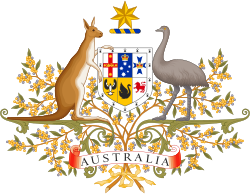Tuckiar v The King facts for kids
Quick facts for kids Tuckiar v The King |
|
|---|---|
 |
|
| Court | High Court of Australia |
| Decided | 8 November 1934 |
| Court membership | |
| Judges sitting |
|
Tuckiar v The King was an important court decision in Australia. The High Court of Australia made this decision on November 8, 1934. The case looked at how the judge and lawyers acted during the trial of a Yolŋu man named Dhakiyarr (also known as Tuckiar) Wirrpanda.
Dhakiyarr's original trial happened in the Northern Territory Supreme Court a year earlier. He had been found guilty and given a very serious punishment. However, the High Court's decision changed this outcome. This case became a key example in legal studies. It showed important issues about how judges and defence lawyers should act. It also highlighted how Indigenous people were treated in the Australian justice system at that time.
Contents
What Happened Before the Case?
Dhakiyarr Wirrpanda was a Yolŋu Aboriginal man who lived a traditional life. He was accused of causing the death of a police officer, Albert McColl. This happened on Woodah Island, which is off the coast of Arnhem Land in northern Australia.
Officer McColl had gone to Arnhem Land with other police officers. They were looking for some Aboriginal people. These people were thought to have caused the deaths of the crew of a Japanese pearling boat. During this time, it was found that McColl had put handcuffs on Djappari, who was one of Dhakiyarr's wives, and some other women.
The First Trial
Dhakiyarr's first trial was very short, lasting only one day. A jury of 12 people found him guilty. However, later on, it was believed that the judge, Judge Wells, had given wrong instructions to the jury.
Arguments that Dhakiyarr acted to protect himself or because he was provoked were not properly presented to the jury. The events around these deaths were often called the Caledon Bay murders in the newspapers.
Why Was There an Appeal?
The case known as Tuckiar v. the King was an appeal to the High Court of Australia. An appeal means asking a higher court to review a decision made by a lower court. This appeal came from the Supreme Court of the Northern Territory.
The High Court heard the case for two days, on October 29 and 30, 1934. This appeal happened after some people, including an Anglican church leader named A. P. Elkin, protested and worked to get the case reviewed.
The High Court's Decision
All five judges in the High Court agreed. They decided that the first trial was not fair. They said that a serious mistake had happened in the way justice was carried out. Because of this, the High Court cancelled the decision from the first trial.
After being held for seven months in Fannie Bay Gaol, Dhakiyarr was on his way home. Sadly, he disappeared and was never seen again.
What Is the Legacy of This Case?
The Tuckiar v The King case is still very important today. It teaches us about fairness in the legal system.
A Step Towards Reconciliation
In 2003, a special ceremony took place in the Supreme Court of the Northern Territory in Darwin. About 38 descendants of Officer McColl and around 200 descendants of Dhakiyarr came together. This meeting was a step towards reconciliation, which means making peace and understanding after past conflicts.
This event was shown in a 2004 film called Dhakiyarr vs the King. The film was made by Tom Murray and Allan Collins. It won awards, including the NSW Premier's History Award. It was also nominated for a big prize at the 2005 Sundance Film Festival and won the Rouben Mamoulian Award at the Sydney Film Festival.
Impact on Legal Ethics
A famous quote from the Tuckiar v The King case is: "Our system of administering justice necessarily imposes upon those who practise advocacy duties which have no analogies, and the system cannot dispense with their strict observance."
This quote means that lawyers have very important duties that they must follow carefully. This idea was used in a later court case called AB v CD; EF v CD. That case was about a criminal lawyer named Nicola Gobbo who secretly worked as an informant for the Victorian Police. The quote from Tuckiar v The King helped explain the serious duties lawyers have.
 | William M. Jackson |
 | Juan E. Gilbert |
 | Neil deGrasse Tyson |

